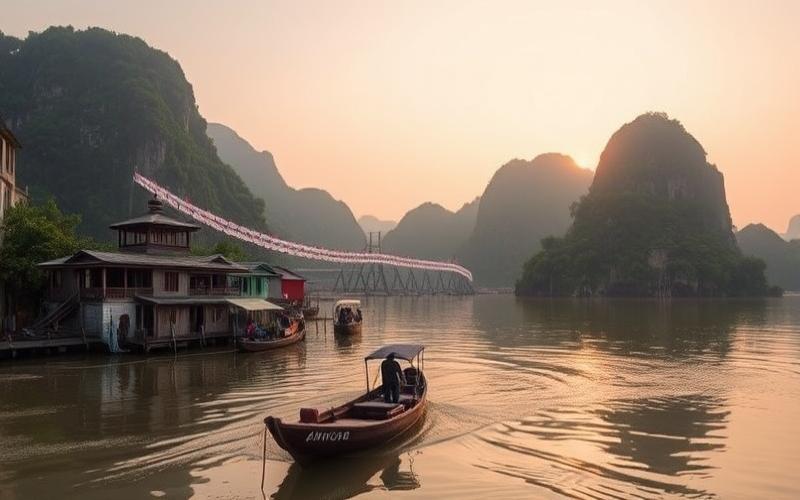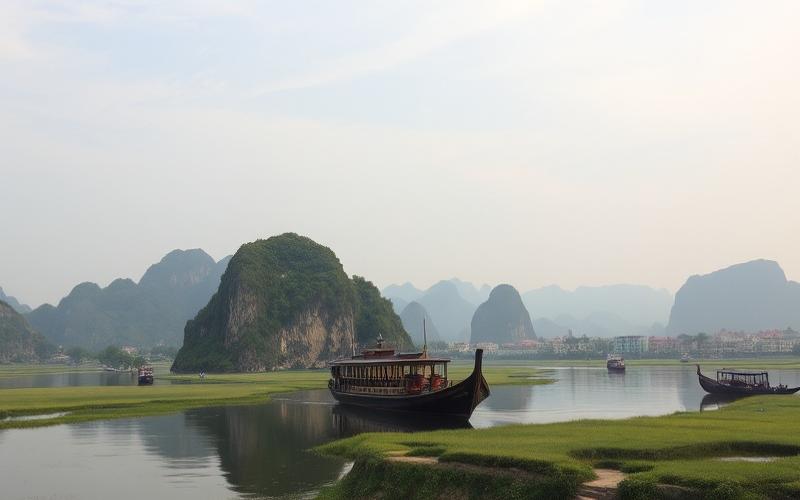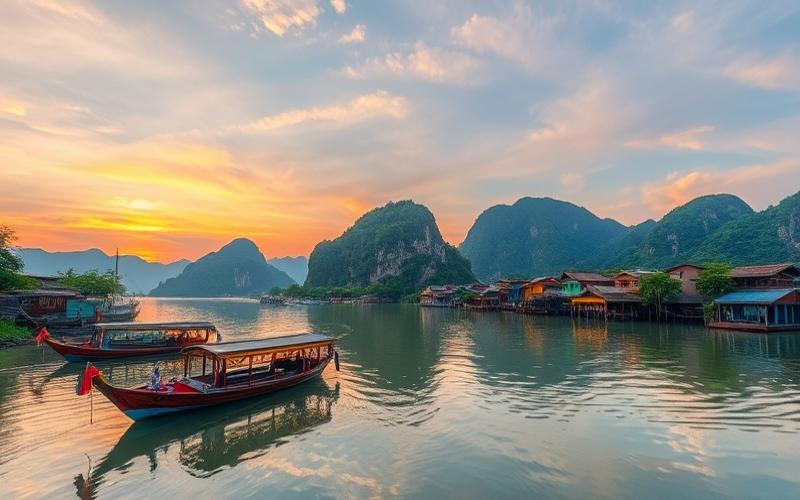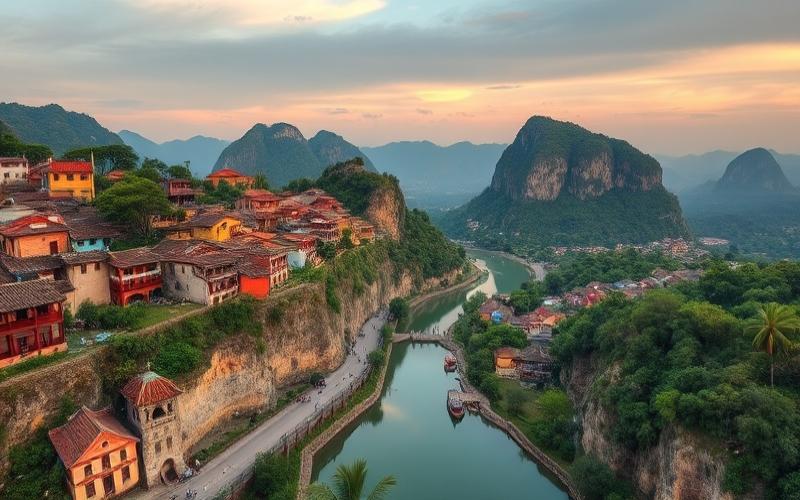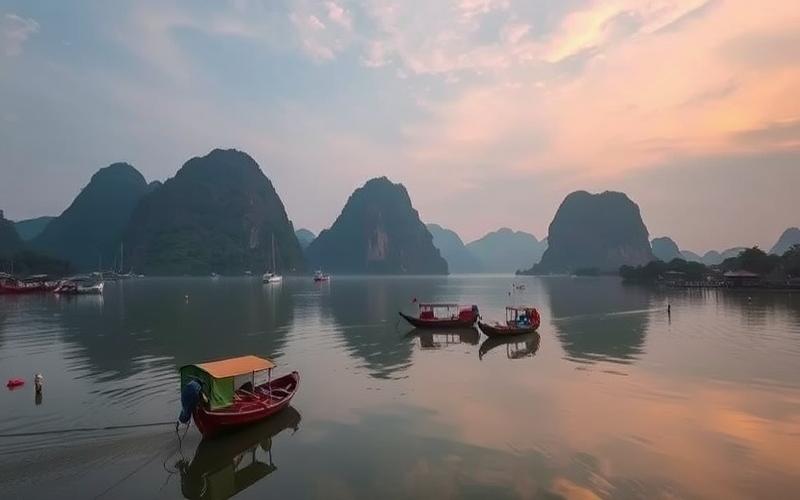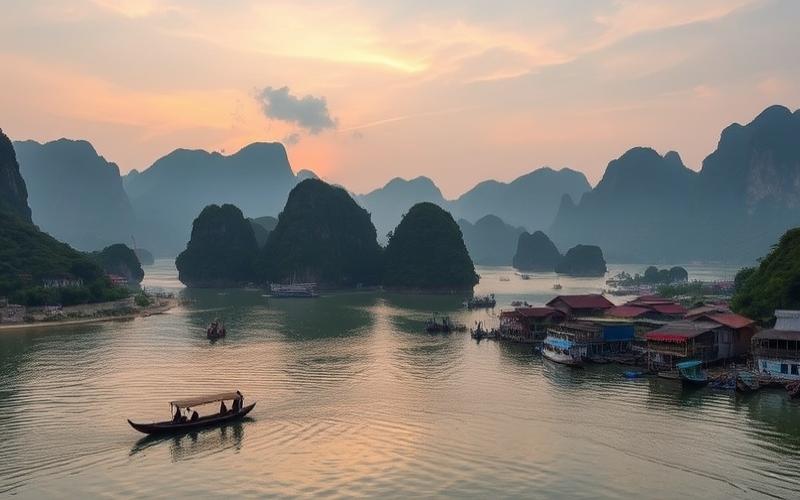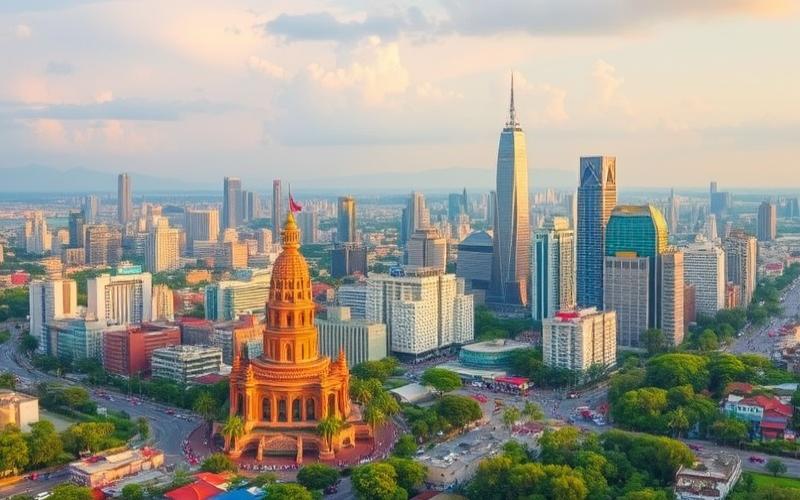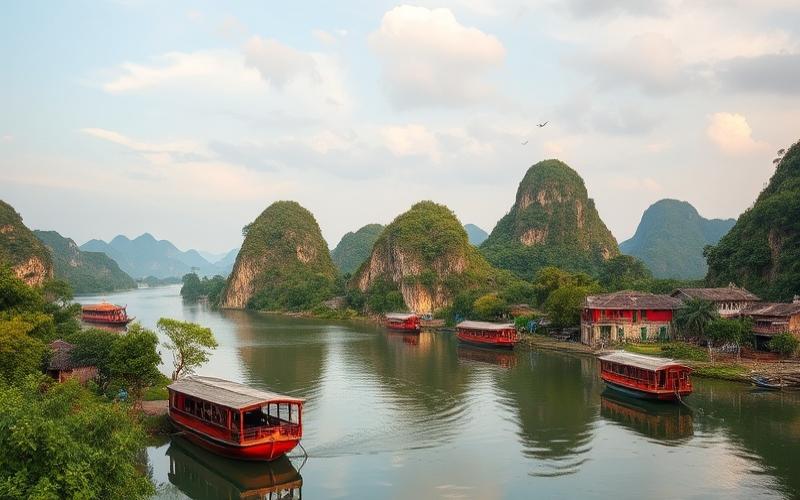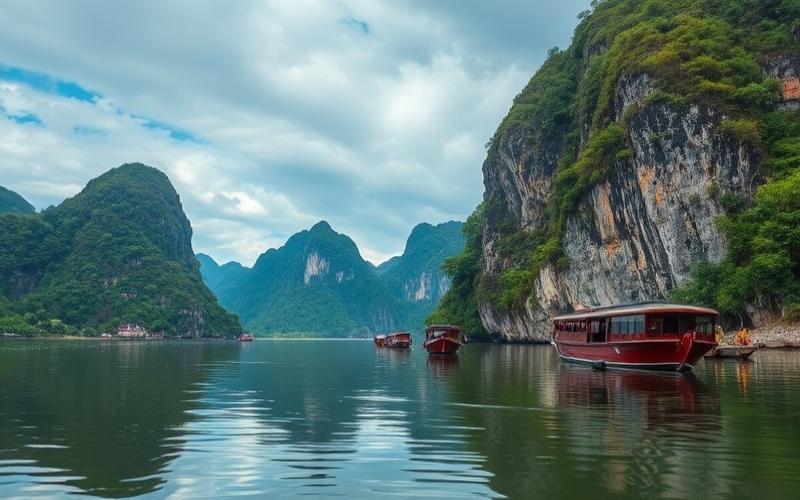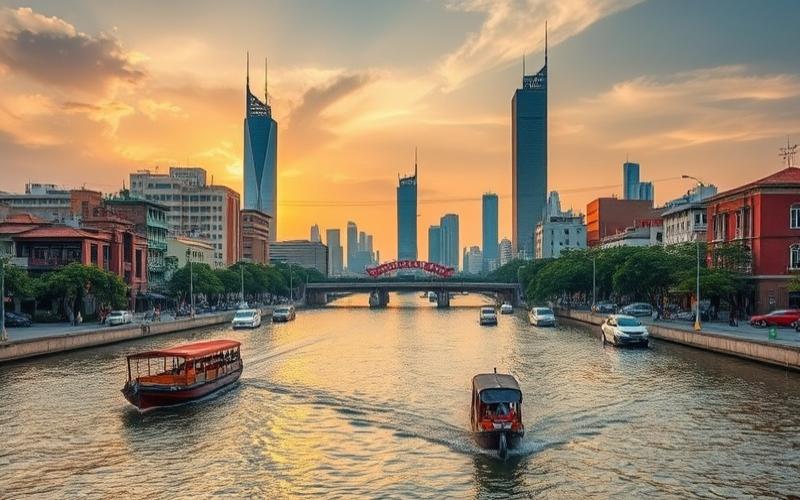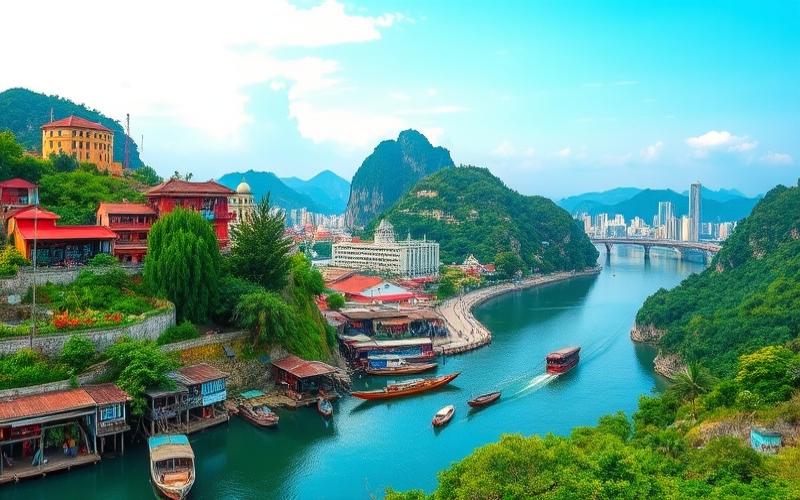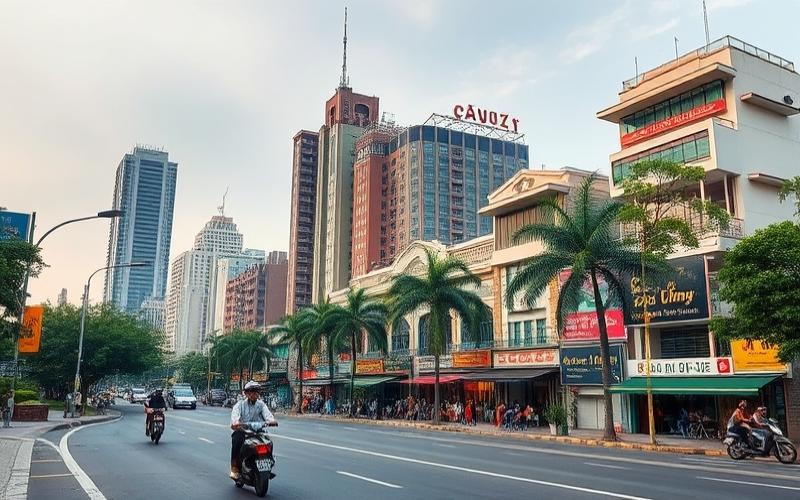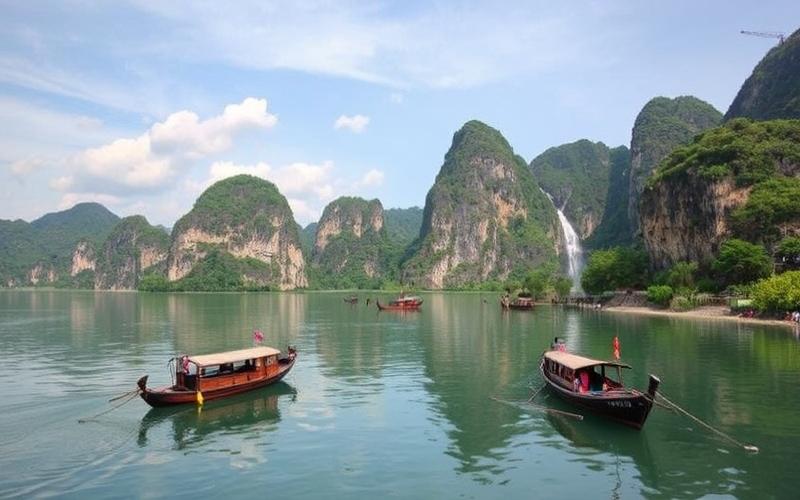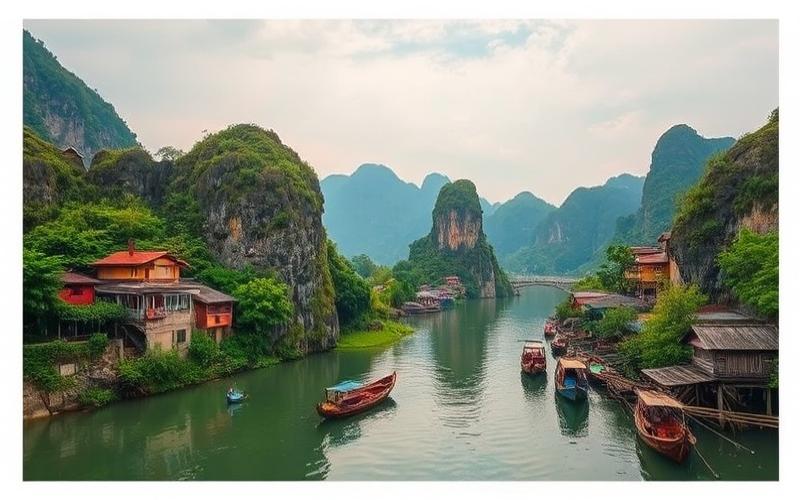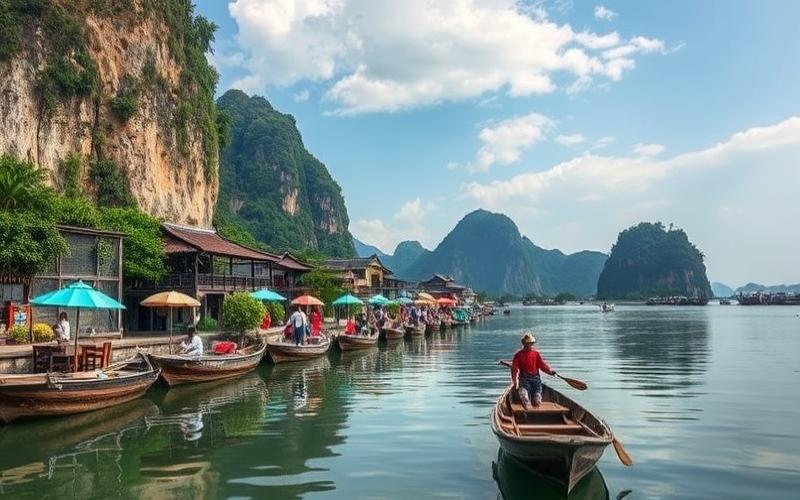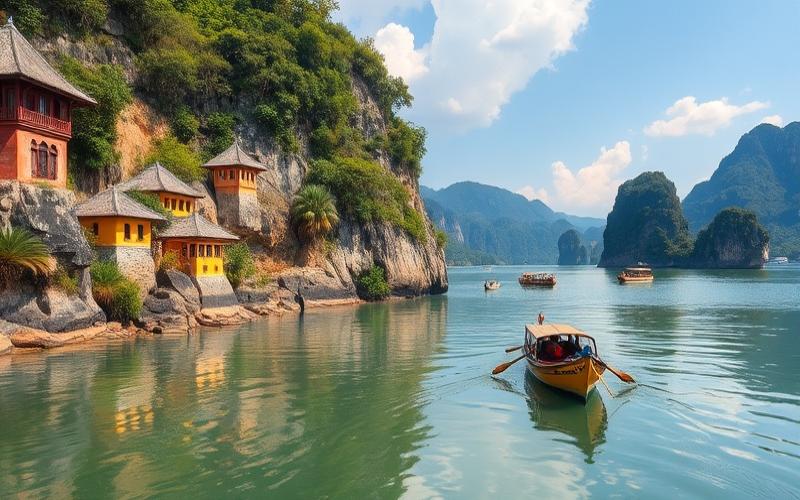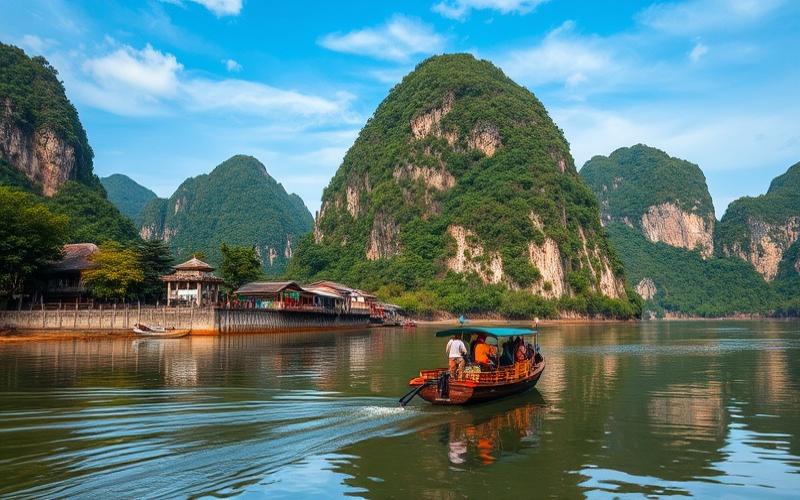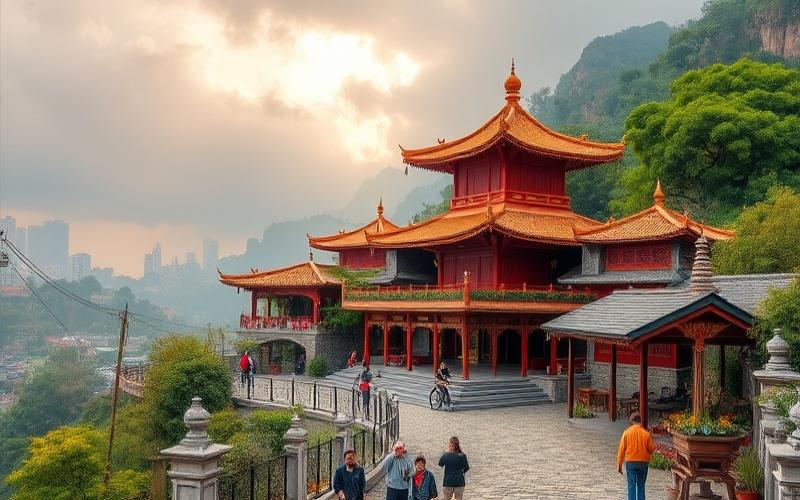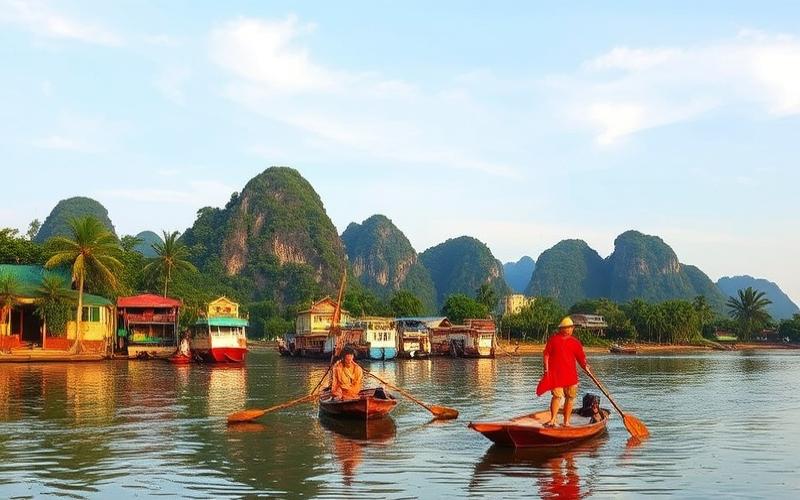
 Published on and written by Cyril Jarnias
Published on and written by Cyril Jarnias
Mandatory Insurance in Vietnam’s Real Estate
In a booming real estate market like Vietnam’s, navigating legislative requirements can be complex, particularly regarding mandatory insurance. With dynamic economic growth and rapid urbanization, it becomes essential for investors and property owners to understand these obligations to protect their assets.
This article provides a detailed comparison of different mandatory insurance types in Vietnam’s real estate sector, highlighting various required coverage types and implications for securing your investments in this country at the crossroads of innovation and tradition.
Good to Know:
Vietnam is experiencing sustained real estate growth, with specific regulations to protect investors and residents.
Understanding Essential Insurance for Property Owners in Vietnam
Essential Insurance for Real Estate Owners in Vietnam
Real estate owners in Vietnam must distinguish between mandatory insurance, required by legislation, and recommended insurance that offers additional protection but isn’t legally required.
| Insurance Type | Status (Mandatory/Recommended) | Main Coverage | Risks Covered |
|---|---|---|---|
| Fire Insurance | Mandatory | Damage caused by fire, explosion | Property damage related to fire |
| Home Multi-Risk Insurance | Recommended | Fire, water damage, theft, vandalism | Financial losses from incidents or theft |
| Property Owner Liability | Recommended | Damage caused to third parties (injuries/property) | Compensation claims from third parties |
| Natural Disaster Insurance | Recommended | Flood, storm, earthquake | Property damage from weather events |
Fire Insurance
- Mandatory for certain building types and property uses (particularly collective buildings or commercial premises).
- Protects against financial losses from fire or explosion.
- Vietnamese law requires this insurance as part of compliance with major risk prevention standards.
Home Multi-Risk Insurance
- Typically covers property damage (non-mandatory fires depending on housing type), accidental water damage, theft, and vandalism.
- Provides increased peace of mind for common incidents not covered by mandatory insurance.
Property Owner Liability
- Compensates for unintentional harm to others: falling objects from windows injuring passersby or damage affecting neighbors.
- Strongly recommended to limit financial exposure to third-party disputes.
Natural Disaster Insurance
- Vietnam being exposed to frequent floods and typhoons in certain coastal or rural areas.
- This coverage is advised even if optional: it covers restoration after major weather-related incidents.
Differences Between Mandatory and Recommended Insurance
- Mandatory Insurance:
- Legally imposed to protect public interest (e.g., fire risk).
- Recommended Insurance:
- Optional but strongly advised to broaden asset protection against numerous hazards not covered by legal requirements alone. They’re freely chosen based on the real estate profile (asset value; personal vs. rental use; geographic location).
Main Providers in the Vietnamese Market
Indicative list of dominant players:
- Bao Viet Insurance
- PetroVietnam Insurance Corporation
- Bao Minh Insurance Corporation
- PTI Insurance
- BIDV Insurance Corporation
International insurers also operate through joint ventures or local subsidiaries. Banks actively participate through “bancassurance,” facilitating access to these products during real estate transactions.
Practical Tips for Choosing Coverage
- Accurately assess the nature and value of your property.
- Identify specific risks related to its geographic location (flood zone? dense urban area?).
- Carefully compare offered guarantees: contractual exclusions; compensation limits; applicable deductibles.
- Prioritize a locally recognized insurer for financial strength and claims handling efficiency.
- Regularly review your needs during significant changes: major renovations; rental arrangements; additional acquisitions.
In summary: Fire insurance is generally legally required while property owner liability and home multi-risk insurance are strongly recommended given Vietnam’s environmental risks—choosing an appropriate combination allows real estate owners to securely protect their investment against both major and everyday unforeseen events.
Good to Know:
In Vietnam, property owners must familiarize themselves with certain essential insurance types. Fire insurance is often mandatory for most owners, covering fire-related damage, while home multi-risk insurance, though optional, is strongly recommended to protect against losses from theft, floods, or other natural disasters. Legal constraints impose fire insurance for high-rise buildings and certain risk zones. Compared to mandatory insurance, multi-risk insurance can be tailored to the owner’s specific needs. Main providers like Bao Viet or PVI offer varied products, and it’s advisable to compare coverage and prices, considering property type and location. Choosing the right insurance involves carefully evaluating these aspects to ensure adequate protection and avoid unnecessary expenses.
Differences Between Home Insurance in Vietnam and Elsewhere
Differences Between Home Insurance in Vietnam and Other Regions
| Aspect | Vietnam | Europe / North America |
| Coverage Types |
|
|
| Legal Requirements |
|
|
| Premium Costs |
|
|
| Covered Risks |
|
|
| Perception and Importance |
|
|
Key Takeaways for Vietnam:
- Home insurance remains a niche product, mainly for middle and upper classes, or expatriates.
- Coverage is often basic, with options for valuable items or specific risks.
- Natural disasters are the primary concern, followed by fires.
- Legal obligations are limited, explaining low local market penetration.
- Premiums are attractive but compensation limits may be lower than in Europe or North America.
Factors Influencing Premium Costs in Vietnam:
- Property location (urban area, natural risk zone)
- Value and nature of insured items
- Chosen coverage level (basic or extended)
- Subscriber profile (local, expat, business)
- Claims history
In Summary:
Home insurance in Vietnam is distinguished by its flexibility, low cost, and moderate cultural perception of its usefulness, contrasting with Western markets where it’s seen as a cornerstone of asset protection and socially indispensable.
Good to Know:
In Vietnam, home insurance mainly offers basic coverage against fires, weather events, and theft, while in Europe and North America, they often include more comprehensive policies covering liability and water damage. Legally, home insurance isn’t mandatory in Vietnam, unlike some European countries where it’s often required by law or mortgage lenders. Insurance premium costs in Vietnam are generally lower than in Western countries due to limited coverage and competition among local insurers; however, they can be influenced by factors such as geographic location and property value. Covered risks frequently include typhoons and floods, priorities for areas prone to these weather phenomena, while the United States, for example, focuses more on earthquakes and fires. Finally, home insurance in Vietnam is often perceived as secondary protection rather than a necessity, an attitude contrasting with the high value placed on this security in many Western cultures.
How to Choose the Best Liability Insurance in Vietnam
Liability insurance is a contract that protects property owners against financial consequences of damage caused to third parties in the context of property ownership or management. In Vietnam, it holds particular importance for real estate owners, as it covers expenses related to visitor injuries, material damage to neighbors, as well as legal fees in case of disputes. This insurance type not only protects the owner’s assets but also their peace of mind, facing risks of accidents, fires, or floods that are frequent in the country.
Main Criteria to Consider When Choosing Liability Insurance:
- Offered Coverage: generally includes bodily injury and property damage to third parties, legal defense, as well as repair or compensation costs.
- Coverage Exclusions: certain events or circumstances may be excluded, such as intentional acts, damage caused by undeclared animals, or incidents related to construction defects not covered.
- Deductibles: amount remaining the insured’s responsibility for each claim; varies by contract and impacts premium cost.
- Customization Options: possibility to add specific guarantees (theft, glass breakage, water damage, etc.) or adjust compensation limits according to property value and lifestyle.
Comparison of Main Insurers Operating in Vietnam:
| Insurer | Average Price (Annual) | Reputation | Customer Service Quality |
|---|---|---|---|
| Bao Viet Insurance | Medium | Excellent (local) | Good support in Vietnamese |
| AIG Vietnam | High | International, reliable | Multilingual service, fast |
| Insurance in Asia | Variable | Expat specialist | Personalized advice |
| Bao Minh Insurance | Affordable | Solid, local | Sometimes slower process |
Practical Tips for Reading and Understanding an Insurance Policy:
- Take time to read the entire contract, paying particular attention to definitions of used terms.
- Verify essential clauses:
- Compensation limit for liability.
- Detailed list of exclusions.
- Claim reporting and management procedures.
- Possible waiting periods.
- Ensure valuable items or specific risks (e.g., shared residence, seasonal rental) are properly covered or can be added via an option.
Common Mistakes to Avoid When Choosing Liability Insurance:
- Choosing solely based on price without considering guarantee limits and exclusions.
- Not declaring all occupants or property uses (rental, subletting, professional activity).
- Omitting to update the policy during significant changes (renovations, occupant changes, addition of valuable items).
- Ignoring deductibles, which can limit coverage effectiveness in case of claims.
Useful Resources and Contacts for More Information or Professional Assistance:
- Specialized Brokers: Insurance in Asia, April International, Henner.
- Insurer Websites to obtain online quotes and compare guarantees.
- Chamber of Commerce or Expat Associations for recommendations on insurers suited to the Vietnamese market.
- Legal Advisors Specialized in Insurance Law for detailed analysis of complex contracts.
To Remember: Adapting coverage to the actual property situation and lifestyle is essential to avoid unpleasant surprises. Careful contract reading and professional guidance are strongly recommended.
Good to Know:
Liability insurance is essential for real estate owners in Vietnam, as it protects against claims for damage caused to others. When selecting it, it’s crucial to consider the offered coverage, exclusions, deductibles, and available customization options. Comparing offers from main insurers, such as Bao Viet, Manulife, and AIG, can reveal significant differences in terms of price, reputation, and customer service quality. To understand an insurance policy, carefully read clauses about coverage limits and exclusions. Avoid common mistakes such as underestimating your property’s value or ignoring specific exclusions. Consulting an independent insurance broker can provide impartial advice, while online resources or contacts in the sector offer additional useful information.
Disclaimer: The information provided on this website is for informational purposes only and does not constitute financial, legal, or professional advice. We encourage you to consult qualified experts before making any investment, real estate, or expatriation decisions. Although we strive to maintain up-to-date and accurate information, we do not guarantee the completeness, accuracy, or timeliness of the proposed content. As investment and expatriation involve risks, we disclaim any liability for potential losses or damages arising from the use of this site. Your use of this site confirms your acceptance of these terms and your understanding of the associated risks.





